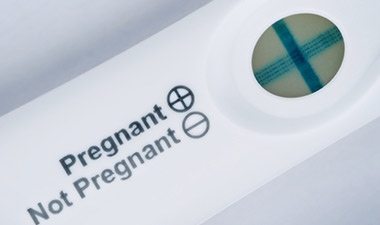Is It Bad to Continually Lose Your Period Every Month
There are many reasons that periods can be irregular, or absent. Some require treatment, and some do not.
It is not uncommon to occasionally miss a period, or for periods to become irregular from time to time. Under some circumstances, periods can even stop altogether. Sometimes these irregularities are due to normal changes, and are not cause for concern. Other times, they are a sign that something is going on, and a call to your doctor is warranted.
Why did I miss a period?
Missing a period is not uncommon, and most of the time, it is not a cause for concern. Some of the reasons you might miss a period include:
Normal lifecycle changes
There are a number of changes that happen in the female lifecycle that can result in a skipped period. All of these are normal reasons to miss a period and are not cause for concern.
For example:
 Pregnancy
Pregnancy
The most common reason for a missed period is pregnancy. If this is a possibility, take a home pregnancy test to see if this is the cause of your missed period. If you skip a period and then have one the next month at the expected time, it's possible that a non-viable pregnancy occurred, and the period is actually an early miscarriage.
Breastfeeding
Breastfeeding can suppress your period, depending on how frequently you are nursing. You may get a period while breastfeeding, and then not have another one for several months or more, particularly if your baby is nursing exclusively. You can ovulate before you get your period, so it's important to use birth control during this time, if you don't want to get pregnant.
Menopause
A skipped period may be a sign that you are entering menopause and your periods are beginning to become less regular, especially if you are experiencing other symptoms of menopause (e.g., hot flashes). If you are 45 or older, there is a good chance this is the cause of a missed period.
Stress
Both psychological and physiological stress can cause a missed period. If you are going through a difficult period of life (e.g., moving, new job, loss of a loved one), or experience a physical trauma (e.g., surgery, illness) it is not unusual to miss a period. There are many things you can do to help manage your mental stress levels. Talking to a trusted friend or family member about what you are going through can help. Carving out small blocks of time for activities that help you relax, such as exercise, yoga, painting, or reading can also help. If you are finding your stress very hard to manage, talking to a therapist with expertise in cognitive behavioural therapy can help you change some of your thinking patterns and learn to cope better.
Weight loss
Excessive exercise and rapid weight loss can result in a missed period. If your caloric intake is very low, the hormones that cause ovulation to happen are suppressed. If you are underweight, a dietitian can help you plan your dietary intake to promote weight gain.
 If you are struggling with an eating disorder, there is help out there. Counseling, support groups, self-help strategies, and support from a team of health care providers such as a dietitian, psychiatrist, and your family doctor can all be part of recovery. There are also medications that can help. Contact your doctor or the Canadian Mental Health Association to find resources in your area.
If you are struggling with an eating disorder, there is help out there. Counseling, support groups, self-help strategies, and support from a team of health care providers such as a dietitian, psychiatrist, and your family doctor can all be part of recovery. There are also medications that can help. Contact your doctor or the Canadian Mental Health Association to find resources in your area.
Birth control
If you take the birth control pill continuously without taking a seven day break where the pills do not contain hormones (or you don't take a pill at all), you will miss a period. Similarly, if you are using the birth control shot, patch, vaginal ring (without removal for the seven day break) or have a progestin IUD, you will likely have few or absent periods.
Hormonal changes
Hormonal changes can also result in missing periods. The most common causes of hormone changes are polycystic ovarian syndrome, pituitary tumours , and thyroid disorders.
Medications and drugs
Some medications that can cause a missed period include antidepressants, antipsychotic drugs, chemotherapy drugs, and steroids. Cannabis and opioids can also make your periods irregular, less frequent, or may cause them to stop completely.
Why am I not getting my period at all?
The medical term for absent periods is 'amenorrhea', and is considered to occur when a woman who has previously had normal periods stops menstruating for six months or more. Many of the causes of amenorrhea are the same as those for a skipped period. Your period can be absent for a number of reasons:
 Pregnancy
Pregnancy
The most common reason to not get your period is because you are pregnant. A home pregnancy test can quickly tell you if that is the reason.
Menopause
Most women stop getting their periods in their late 40s or early 50s. The average age is 51 years old.
Breastfeeding
If you breastfeed frequently, including at night-time, you may not get a period for many months. Be aware that you will ovulate prior to getting your period back, so birth control is important if you are not ready to be pregnant again.
Stress
While a sudden stressful life event can result in a single missed period, ongoing, high level stress and anxiety can cause your period to stop altogether. Managing stress though self-care, counselling, changing your life circumstances, medication, or other strategies can help you return to having normal periods.
Weight loss
Ongoing, dramatic weight loss, from low intake, excessive exercise, gastric bypass surgery, or eating disorders such as anorexia or bulimia can stop your period. This happens because the hormones required for ovulation are not produced.
Underweight
At a BMI of less than 18, you may experience the absence of periods. The exact weight and body fat levels that result in amenorrhea differs from person to person.
Obesity
Obese women are more likely to have absent periods or infrequent periods. This is due to hormonal changes associated with obesity, such as increased insulin, increased testosterone, and insulin resistance. Obesity is also associated with polycystic ovary syndrome (PCOS), which impacts the menstrual cycle and can cause periods to stop (or can cause heavy menstrual bleeding).
High levels of prolactin
Prolactin is a hormone that is produced by the pituitary gland, located in the brain, which stimulates breast development and the production of milk. If you are not pregnant or nursing but have high levels of prolactin, you may not be ovulating, and therefore may not menstruate.
Asherman's syndrome
This is a very rare condition where scar tissue is present inside the uterus. It typically develops after surgery (for example dilatation and curettage), or after an infection of the uterus. The scar tissue is usually removed surgically.
Absent uterus
Although it is very rare, there is a rare congenital syndrome called Mayer-Rokitansky-Kuster-Hauser syndrome where the uterus and upper vagina are absent at birth, although ovaries and fallopian tubes are present. No menstruation occurs due to the lack of uterus.
If you have had a hysterectomy, no menstrual periods will occur.
Premature ovarian failure
This condition is marked by the depletion of follicles in the ovaries before the age of 40. It leads to early menopause and the absence of periods, and the loss of fertility.
Pituitary tumours
A pituitary tumour is an abnormal growth of cells that originates in the pituitary gland, located in the brain. Control of the body's hormones is regulated by the pituitary gland. It secretes a wide variety of hormones, including growth hormone, thyroid-stimulating hormone, adrenocorticotropic hormone, luteinizing hormone , follicle-stimulating hormone , and prolactin. Depending on where in the pituitary gland the tumour is growing, production of any of these hormones can be impacted.
Pituitary tumours are almost always benign. There is a very wide range of symptoms that can be caused by a pituitary tumour, depending on its location and what type of hormone(s) the tumour is producing. They can exert a wide range of effects on menstruation, and can cause periods to become irregular or stop altogether.
steptoedeppoccanot.blogspot.com
Source: https://www.yourperiod.ca/abnormal-pain-and-menstrual-bleeding/irregular-or-absent-periods/
0 Response to "Is It Bad to Continually Lose Your Period Every Month"
Post a Comment